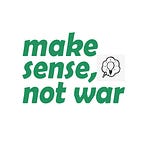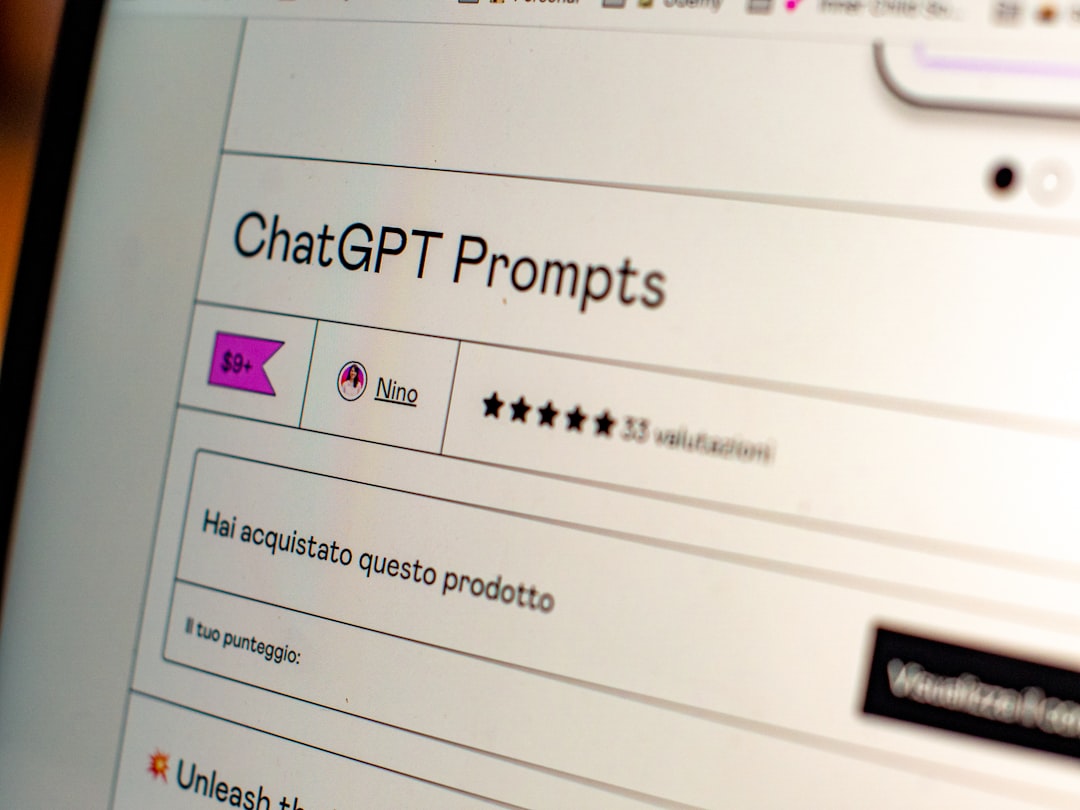Exponential tech leads…to exponential disinformation, exponential extraction, exponential pollution, exponentially scaled warfare, on a finite playing field that self-destructs — Daniel Schmachtenberger, War on Sensemaking
You'd probably agree that it is currently very difficult to make sense of the world. Maybe you’ve given up altogether some time ago.
According to Daniel Schmachtenberger, Co-Founder at the Neurohacker Collective, humanity is playing dangerous zero-sum games with a few winners and many losers in a darkening landscape of culture wars, game-A rivalrous dynamics, limbic AI-hijacks, and massive disinformation, propaganda, and psychological warfare.
This process can be expressed in this equation:
Poisoned information ecology X exponential technological growth based on poor and incomplete choice-making = self-destruction
Or, as Daniel puts it eloquently: Humanity is running into a forest increasingly blind and increasingly fast.
Since the 70ies, a conscious war on sense-making has been ignited. One major thing to get us out of this mess is to start learning ourselves and other good sense-making.
Never has good sensemaking been more existentially important, and never has it been more important to figure out how to solve seemingly intractable problems — Rebel Wisdom
This platform aims in helping to build up a healthy info-ecology together.
These are 5 tips on how to make sense of the world again and to contribute to a more clean and clear information ecology.
1. Apply Transparent Vulnerable Knowledge Sharing
According to Smachtenberger, better sense-making starts with creating a relationship around the basic value of truthfulness. The endeavor should be to not withhold any information which in its turn requires huge intimacy and vulnerability.
What comes to mind first from my own experience are men circle’s that I organize. Before we come together in a circle, I make some agreements to make the circle and all that is shared ‘sacred’. All members agree on these points, by raising their hands and vowing the “I Agree’ as if they were in court. Thereafter, most of the time, a beautiful strong container of straightforwardness, honesty, and sincere truthfinding take place.
Being truthful is an individual and communal effort — it means training, not only cognitive abilities, but empathetic relational ones, and our embodied experience in the world. It also means acknowledging that we don’t always have the answer. Admitting our vulnerable ignorance in the face of overwhelming mixed messages may be a good first step — Daniel Smachtenberger
Another process that might resemble this truthful and transparent information sharing is a fully decentralized ecosystem like the Bitcoin community in its inception years. Here, libertarians and cypherpunks got united by a historical virtue, to create the first sound Internet Money. It was their shared values and a very clear and strong goal that got them together in a decentralized transparent information ecology.
2. Avoid Creating Noise or Bullshit
While watching Rebel Wisdom’s films on the War on Sensemaking, one way to do good sensemaking caught my attention. Just realize how often people hear a phrase, see a Tweet, watch a 2-minute video on a topic and adopt this information as ‘true’ while in fact, it’s bullshit. Most people do this and it is one of the main causes of the toxic information ecology we are in at the moment.
The amount of bullshit we consume every day, in part a result of the overwhelming intensity of marketing motives and the conformity demands of our in-group. Furthermore, the intentions of our information sources are as often as not based on clickbait or ideology rather than truth — Rebel Wisdom
The solution is simple; dive deeper into the subject!
Read more trusted sources, do your own research, and don’t take ready-made information for granted. Especially when you decide to write about it, to a retweet or a post.
Be aware if you are not just throwing up further bullshit on people’s narrow attention span to achieve your 2 minutes of dopamine fame in our attention economy on steroids
Realize that Bullshit can be something different than downright lies.
According to the Princeton Philosopher Harry Frankfurt, bullshit differs from lying in that a liar knows the truth but is choosing to intentionally mislead. A bullshitter doesn’t care about the truth and is defined by indifference to how things really are. Sadly, our collective indifference is slowly pushing us over the edge of our civilization’s cliff.
Find back that curiosity for really wanting to know how things truly are. Become the investigative journalist of your own truthful paper and channel.
3. Apply Rule Omega
Another brilliant suggestion from Smachtenberger is to ramp up your truthfulness in regards to becoming a part of the new clean information landscape. Realize that in the ‘truth’ of the other camp, the out-group, the enemy, the trump voter, or global-warming disbeliever, lies a point of truth. In other words:
Move beyond the noise to find the diamond
To discern this diamond we need to become better listeners. To address this, Jordan Hall and Daniel Schmachtenberger have coined the term Rule Omega.
The idea is that every message contains some signal and some noise, and we can train ourselves to distinguish truth and nonsense…If we disapprove of 95% of a distasteful political rant, for instance, we could train ourselves to hear the 5% that is true — Rebel Wisdom
This requires a certain attunement and generosity towards the other, especially those who think differently than we do. This behavior change feels like a huge hurdle, but it can be done. I believe it’s more of a mental change and I guess it needs you staying present to your ‘truth’ biases all of the time with everybody.
One good exercise is to practice rule omega with people you already canceled, deleted, and generally avoid because of their opinions.
This only can be done when the other party agrees on the rule while knowing that rule omega can’t be imposed. In this sense, the rule omega only can work when former information enemies start feeling the urgency to start learning from each other. When they actually have the willingness to shake intellectual hands over the fence of out and in-group and past rivalry.
4. Develop an ‘Informational Immune System’
Informational immune system; to protect our minds from the online onslaught
According to Schmachtenberger, one of the main results of the constant war on sensemaking is that our very consciousness is under constant disinformation and psychological disruption siege. Our intellect and the inborn human ability for healthy sense-making are tested increasingly fast with increasingly dangerous weapons.
One way to deal with this, in Aikido martial art style, is bending those incoming non-sensical weapons into actually sharpening our truth-finding and sense-making abilities, into strength and resilience.
One way to sharpen our defenses and apply information immunity is becoming more embodied. Meaning, get out of the matrix more. Too much screen time, too much time spent online caught in the limbic hijack leads to disembodiment and we are on our way to becoming assets in this estranged sociopathic system that seems to emerge at this moment in time.
This real-world embodiment is really my thing lately. I am facilitating real-world men groups and mixed heart groups to allow people to drop in deeper in their real-world heart connection and embodiment.
I believe there is truth-finding in there too, in real-time. I even wrote about my aspiration to wait as long as possible to move my business online since I refuse to become some kind of equalized product in a simulated virtual ‘borg’ world. It’s just not my deeper heart’s longing.
5. Engage Actively With the Information Ecology
To become good sensemakers, we need to move beyond the state of just receiving information. This could mean we most literally need to push our hearts, minds and even our bodies out of our information comfortzone — Wisdom Rebel
I notice here that getting more conscious in the war on sense-making seems to run 1–1 with getting more aware as human beings, increasing our self-awareness through coaching, retreats, embodiment, and trauma release.
Any process of healing and transformation means moving out of your comfort zone.
This is because the mind always loves to keep control. To really expand, we need to let go of this control, even for a short moment. In this way, the analogy is that our minds also love to hold on to our worldview and our own truth as being ‘the truth’.
Moving out of our own intellectual comfort zone means opening up for wider truths.
To engage actively with the information ecology and any specific information that comes our way or that we attract is engaging with it in an active open way while maintaining healthy information borders, meaning keeping our bullshit immune system aloof and present.
Conclusion
The war on sense-making is actually a war against the human being, because the human being is in essence a sense-making creature, which is our curse and blessing. The same powers which make us so adaptive and intelligent are the ones that make us vulnerable to self deception — John Vervaeke in Awakening to the Meaning crisis series.
The possible desired outcome of a better worldwide information ecology, sparked by an increase of collective sense-making eventually is a synthesis or the emergence of ‘higher truth’.
One mind is not capable of holding the truth of the world. It is in all of our minds and hearts.
New collective intelligence is the way to go forward, to slayer the walls that have artificially been put in place to divide us.
In the war on sense-making, millions if not billions of people have shut down their ability to make sense, to engage with the world outside them using their intelligence, reason, and knowledge. They have become refugees of truth, trapped in culture wars and suffering from digital anxiety. Constantly overloaded with fake information and AI-driven limbic hijacks, they are increasingly becoming empty shells that can be directed and manipulated towards desired action and purchases.
Since collective sense making is a very essential part of our current revolution of inclusion, we should not leave the orphans of sense-making behind.
The problem here is that when they start on their journey of real truth-finding and sense-making, they will be confronted with cognitive dissonance the size of a dragon. As in every fairy tale or fantasy movie, the journey of the true hero often climaxes with the slaying of the dragon.
May we all become the heroes of our own truth and sense-making again soon.
May we all take up our swords of light and truth, to cut through the bullshit and propaganda of this world, and realign with a collective knowing what is good and evil, what is right for humanity, for the good of the commons.
I hope the above advice helps to set on this journey.
Lucien Lecarme
This article is partly inspired by the series ‘The War on Sense-Making’ produced by Rebel Wisdom David Fuller, and Andrew Sweeny and especially the excerpt of the NR. 1 in the series featuring Daniel Smachtenberger.

















Share this post